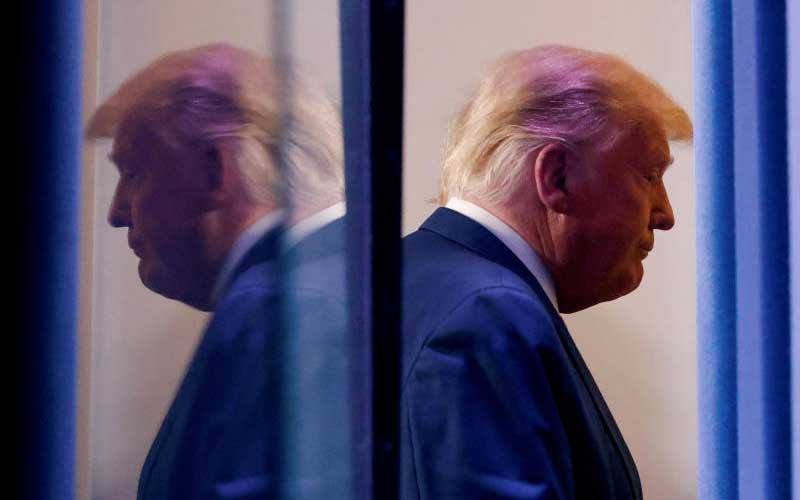×
The Standard e-Paper
Home To Bold Columnists

US President Donald Trump is reflected as he departs after speaking about the 2020 US presidential election results in the Brady Press Briefing Room at the White House in Washington, US, November 5, 2020. [Reuters]
Since taking office in January 2017, President Donald Trump has been besieged by civil lawsuits and criminal investigations of his inner circle.